We Makers of Disease
Active, ongoing weaponization of numerous animal diseases, including Ebola, Zika, Hanta, Anthrax, Lyme, Botulism, Tularemia, Yellow Fever, Dengue Fever, CCHF, H1N1, AIDS, and many many more. Dilyana discovered and presented the military, gov and UN documents, (attempted) interviews, and horrible data.
See also Haunts: Forest Glen
AV9 – Pentagon Bio-weapons … EXPOSED! (Dilyana)
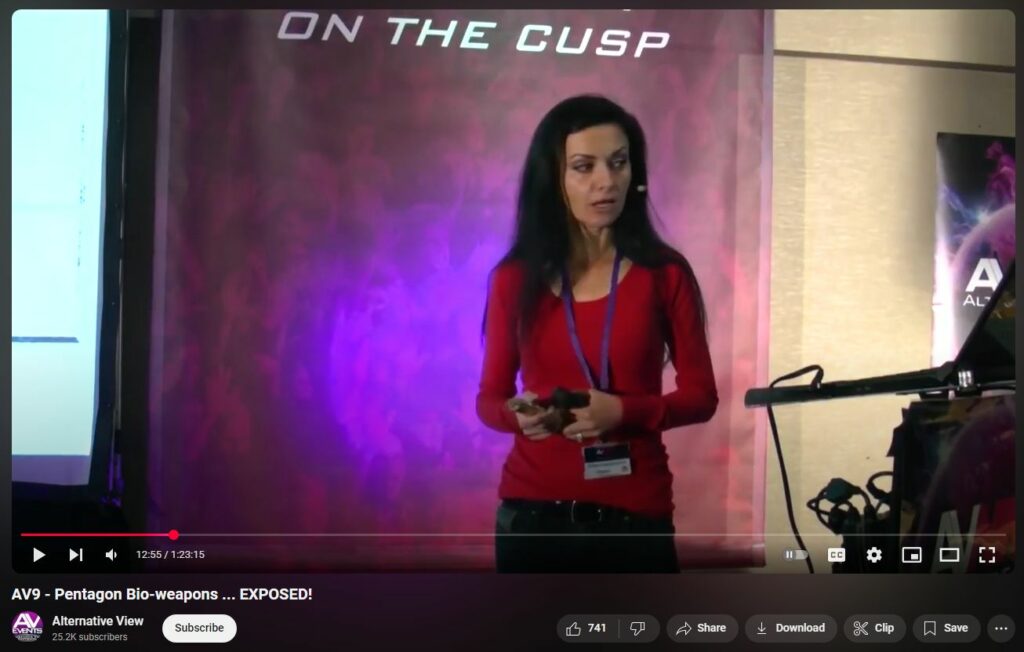
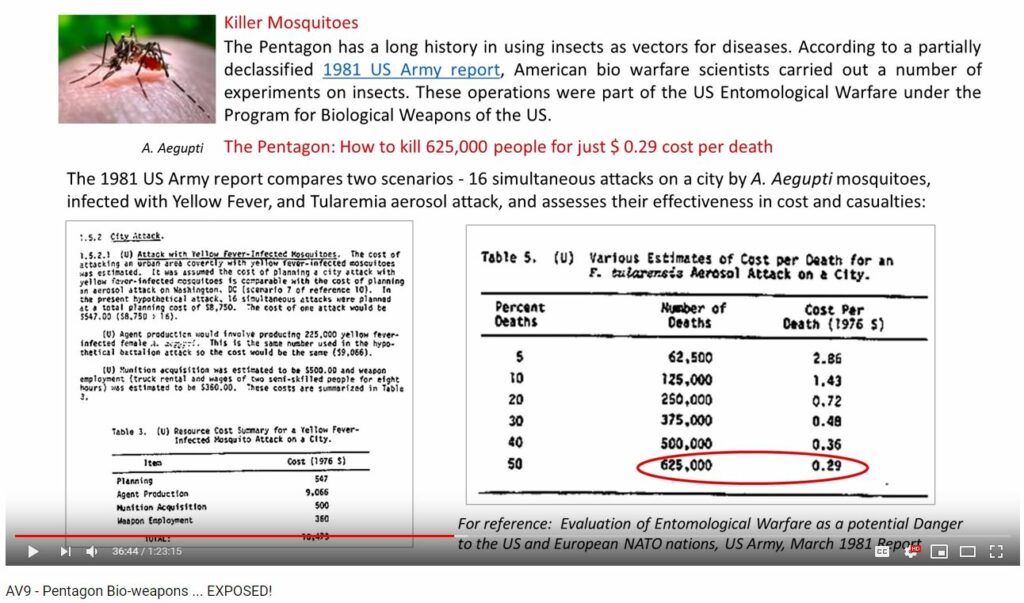
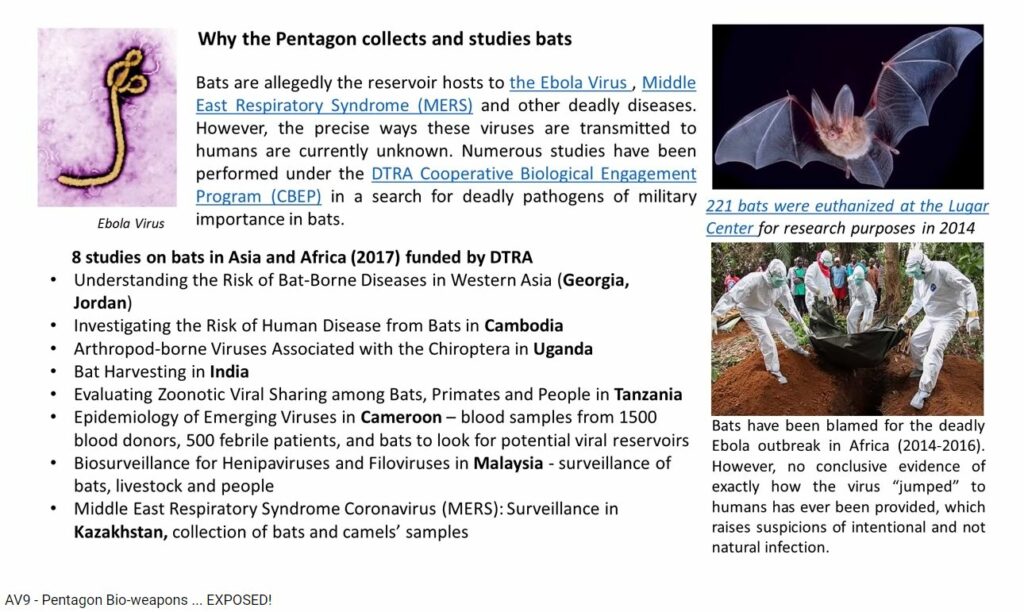
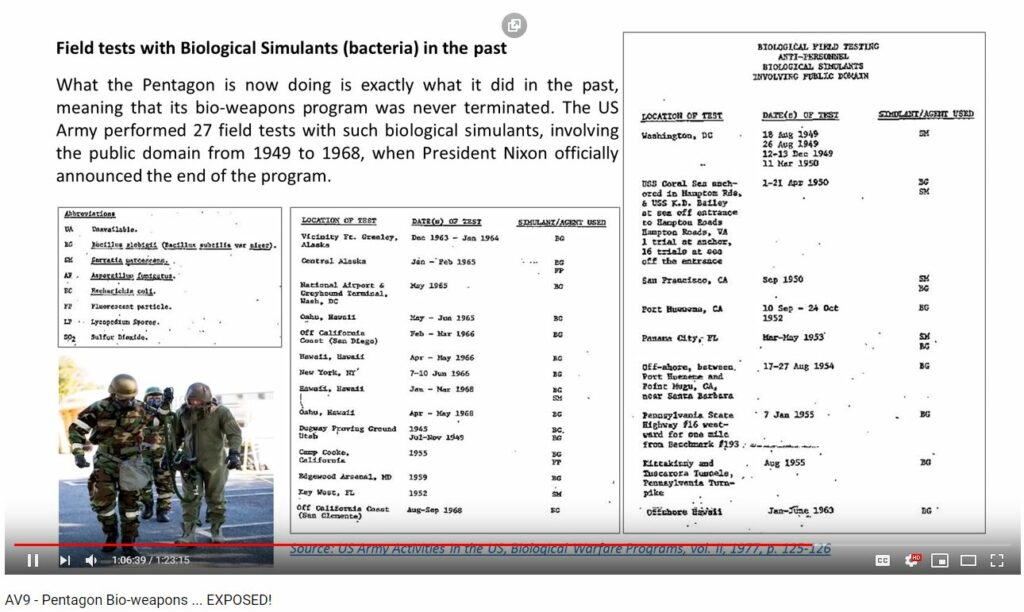
Creation of Function
“It’s strange how the virii jump from nowhere to people. There’s no logical explanation, other than intentional.” — Dilyana Gaytandzhieva, May 2018 AV9 Conference, 1:23:00 in
The Defenestration of Frank Olson
Related: Frank Olson, USAMRIID, CIA/OSS – murdered to silence him after he helped to poison French town of Pont St Esprit. Intersect Chestnut Lodge, Rockville Md.
Dr Mary’s Diseasenous Monkey
Related: Dr Mary’s Monkey”, Judyth Vary Baker, Lee Harvey Oswald, David Ferrie and weaponization of cancer, CIA, National Cancer Institute, USAMRIID. Intersect Nixon; Fort Detrick, Frederick Md.
See also HIGHER FORM OF KILLING book by PAXTON.
See also LAB 257 book by CARROLL for info on weaponized ticks.
See also (youtube) JAP UNIT 731 youtubes for info on Japanese biowar.
Here’s a draft for your blog post:
We, Makers of Disease
In a world rife with technological advancements and medical breakthroughs, one would expect humanity to stand united in combating disease. Instead, we find ourselves surrounded by a paradox: an epidemic of diseases seemingly created, perpetuated, or exacerbated by human hands. As we delve deeper into this unsettling reality, it’s essential to question not just the origins of these ailments but also the systems that profit from their existence.
The industrial revolution marked a turning point in human history, ushering in progress but also unforeseen consequences. Factories spewed pollutants into the air and water, creating environments ripe for chronic respiratory and cardiovascular diseases. In the 20th century, the proliferation of synthetic chemicals and genetically modified organisms promised a revolution in food production, yet their long-term impacts on human health remain hotly debated. Today, microplastics, endocrine disruptors, and ultra-processed foods are just a few of the culprits linked to the rise in conditions like cancer, infertility, and metabolic syndromes.
However, the story doesn’t stop with environmental degradation. Modern medicine, despite its undeniable benefits, often focuses on treating symptoms rather than addressing root causes. This reactive approach creates dependency on pharmaceuticals, turning patients into perpetual consumers. The rise of conditions like Type 2 diabetes and obesity is often framed as a failure of personal responsibility. Yet, these conditions are exacerbated by systemic issues like the aggressive marketing of unhealthy foods, economic inequality, and urban planning that discourages physical activity.
Vaccines, hailed as one of the greatest medical achievements, have saved countless lives. Yet, the conversation surrounding them has grown increasingly polarized. While science supports their efficacy, questions remain about the transparency of pharmaceutical companies and the push for mass immunization campaigns without addressing broader health determinants like nutrition and sanitation in underprivileged areas.
The most insidious aspect of this crisis is the commodification of health itself. Disease is big business. Pharmaceutical companies, insurance providers, and even tech giants have vested interests in maintaining the status quo. Every chronic condition, every prolonged illness, represents a revenue stream. This financial entanglement raises an uncomfortable question: Is there a genuine incentive to cure diseases, or does the system thrive on managing them indefinitely?
The COVID-19 pandemic amplified these concerns, exposing deep flaws in global healthcare systems. From the origins of the virus to the rushed development and deployment of vaccines, the pandemic revealed how political and economic interests can overshadow public health. Whistleblowers and independent researchers faced censorship, further fueling skepticism and mistrust.
To break free from this cycle, we must redefine our relationship with health and disease. Solutions lie not in blindly accepting the narratives of profit-driven entities but in fostering a culture of critical inquiry and holistic well-being. We must demand transparency, hold corporations accountable, and prioritize preventative measures over reactionary treatments.
Ultimately, the question isn’t whether diseases will exist—they always will. The question is whether we will continue to be complicit in their creation and perpetuation.
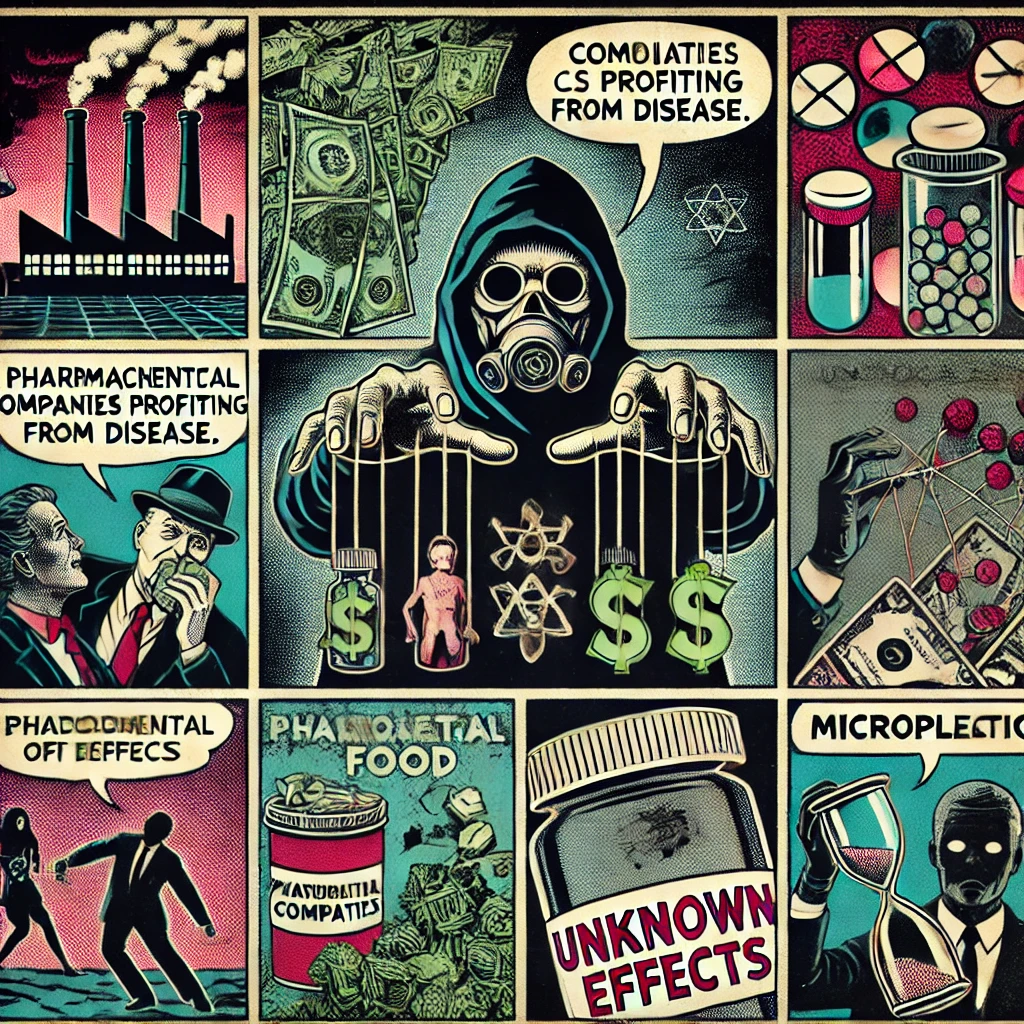
See also / Side note
Adjunct to Frederick’s FORT DETRICK, one quarter-mile from the Mormon Temple just NW of Washington DC is a massive, biological weapons research and production facility like no other, FOREST GLEN.